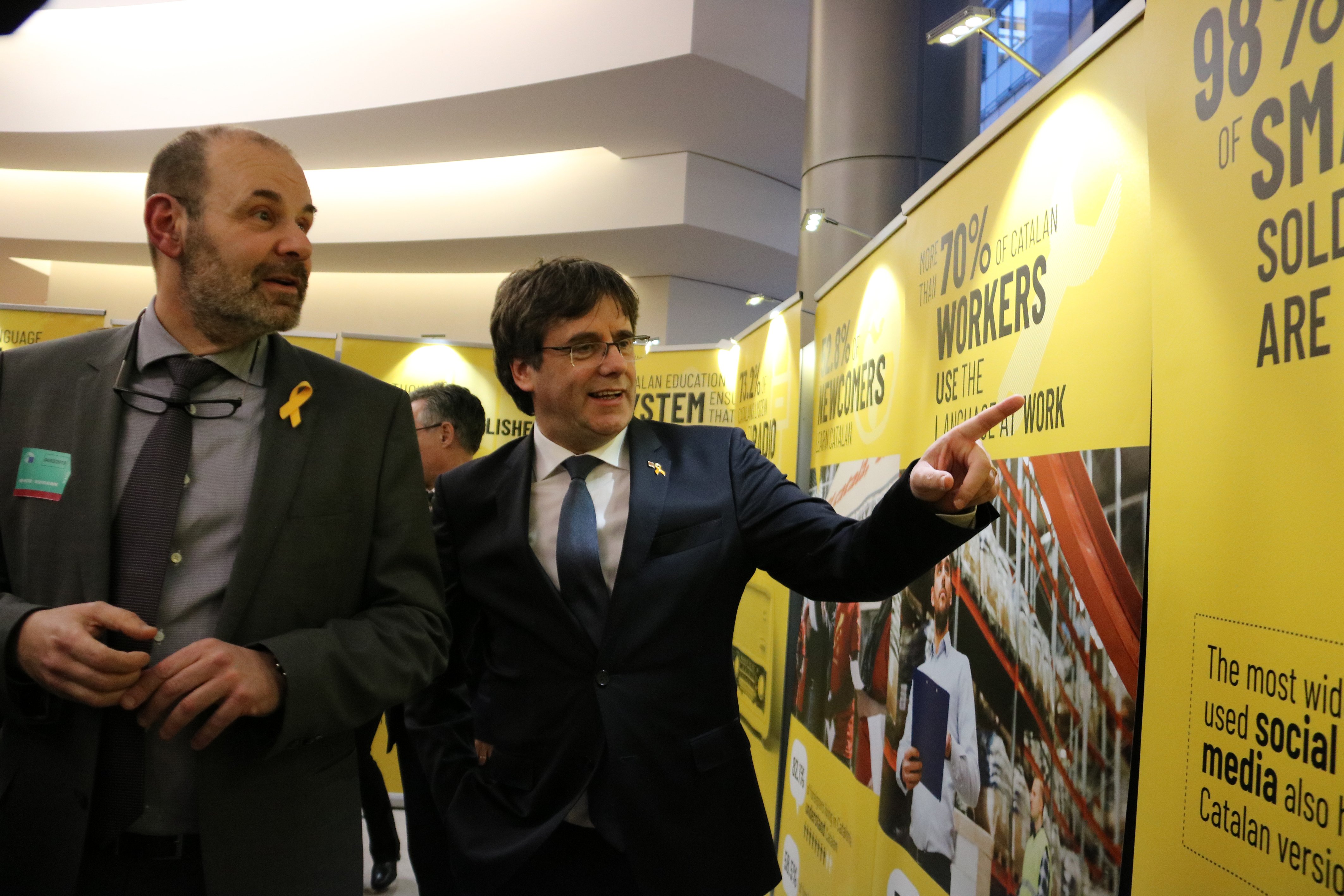A year and a half after Catalonia's independence referendum and subsequent declaration of independence, many global media continue to show international interest in the Spain-Catalonia issue and the figure of the Catalan president in exile, Carles Puigdemont. The latest is Clarín, Argentina's leading daily, which has interviewed the president (link in Spanish) at his residence, the House of the Republic, in Waterloo, Belgium. Asked whether he and his government committed any crime, he gives a clear 'no': "Declaring independence may be illegal, but illegal is different from it being a crime."
He also denies being a fugitive from justice: "The Spanish justice authorities know where I live. The Court of Accounts sends me notifications here," he said. "That doesn't add up to the description of a fugitive. A fugitive is someone whose whereabouts are unknown and who, when justice came for him, responded by taking flight," he explained.
Puigdemont also takes stock after the convulsive year of 2017 and asserts: "Today, Catalonia is a de facto political subject. Two years ago, it wasn't. It is a political subject, recognizable as such, and this is part of a strategy: before 'recognition' can be achieved, what is necessary is 'cognition' - knowledge."
When the newspaper suggests that there are many people who see him as a traitor, Puigdemont is clear: "If I had decided to simply save my skin, and had changed my life and disappeared, that would have been a great betrayal." "People know that I didn't go on holiday or take an Erasmus scholarship. People know that I've made my life very complicated," he adds.
With regard to the current state of the independence movement, Puigdemont says that if there are some leaders who are in prison and others who are in exile, it's because "the Catalan government reached an agreement that, if the moment came, each one would take the decision that they considered best and that we would all respect that, and that's what we've done." This fact, recognizes Puigdemont, makes "strategic leadership" more difficult, but he also stresses that there is "a leadership that continues remains intact: Catalan society."

